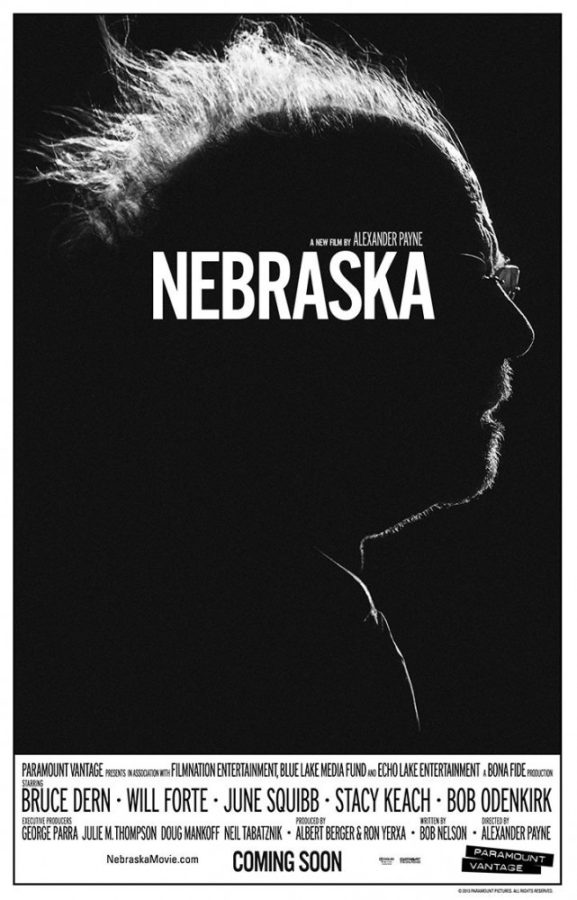Director Alexander Payne returns to his hometown of Omaha, Neb., in this black-and-white film named after the state. Despite this being a modern-day parable, the lack of color instills in the audience a sense of nostalgia. Anchored by the beautiful performance of Bruce Dern as Woody Grant, the film is both an honest character study and an examination and reaffirmation of Midwestern ideals.
Grant is a very old man who inhabits the grey twilight between full-blown senility and lucid consciousness. He receives one of those Publishers Clearing House junk mail letters that claims he’ll be awarded $1 million if he can bring the letter to Lincoln, Neb. Woody takes the letter at face value due to his failing mental state and generally trusting nature, and is actually convinced he’s won $1 million. To fulfill Grant’s fantastical delusion, as his time is obviously limited, his son David (Will Forte) decides to drive his father to Lincoln. Along the way, they meet an eclectic cast of family and “long-lost” friends, more than one of whom become extra-friendly with the new “millionaire.”
Dern won Best Actor at this year’s Cannes Film Festival, and there’s every reason to believe he’ll be a frontrunner for the Oscar. His Grant is one of the most memorable characters in film this year. He’s a grumpy old man with an acerbic wit who aptly states that “beer’s not drinkin’.” However, with his declining grip on reality, Dern captures a mixture of vulnerability, lucidity, confusion and humor that, as someone who’s seen loved ones suffer a mental decline, I can say that Dern gets damn near perfect.
My major gripes with the film are, unfortunately, about the other main actors. It was an accomplishment for Forte to make the transition from sketch comedy extraordinaire on “Saturday Night Live” to actor in a major dramatic film as effectively as he did; however, as a son who must face all of the flaws in his father, he seems to overstate the grief and frustration. June Squibb plays Woody’s loving-yet-critical wife Kate, who makes a point of harping on her husband and his nonsensical ways. Squibb provides some great humor, but her performance seems over-emphasized, and she’s just really loud.
Given that “Nebraska” is the title of the movie, it stands to reason that the setting is, well, Nebraska, and that it plays a major role. If you’ve never been to the Midwest, it’s the Nebraska you would stereotypically expect. Simple people live in simple houses and tend to the fields that have been in their families for generations.
Don’t feel bad for thinking the Midwest is nothing but farm country, though. I went to school at a major university in the Midwest for a year, and people there legitimately believe that we Arizonans ride our horses to school.
The Coen Brothers’ “Fargo” famously painted Minnesota as a desolate white wasteland, home to plaid-wearing folk who speak in giggle-inducing phrases like, “Don’t ya know?” If you’ve never been to Minnesota, and someone asked you what you thought it was like, you would probably come up with something similar — although maybe a little less cartoonish.
“Nebraska,” likewise, shows the state as vast, still expanses of rolling fields where most everyone’s a Cornhusker fan (who, by the way, are just doing average in the Big Ten this year). Some critics take issue with these representations, claiming that directors disrespect their subjects by feeding into stereotypes. But Payne was born and raised in Omaha, Neb., and thus I believe he respects and loves his homeland. The people of “Nebraska” find a source of pride, honor and identity in working the land and by carrying on traditions that go as far back as the soil can remember.
Payne isn’t mocking his home state, but doing the exact opposite. He honors this people who keep to family and land, and will even entertain an old man who wants one last taste of youth and glory.
Grade: A-
Follow Alex Guyton @TDWildcatFilm









